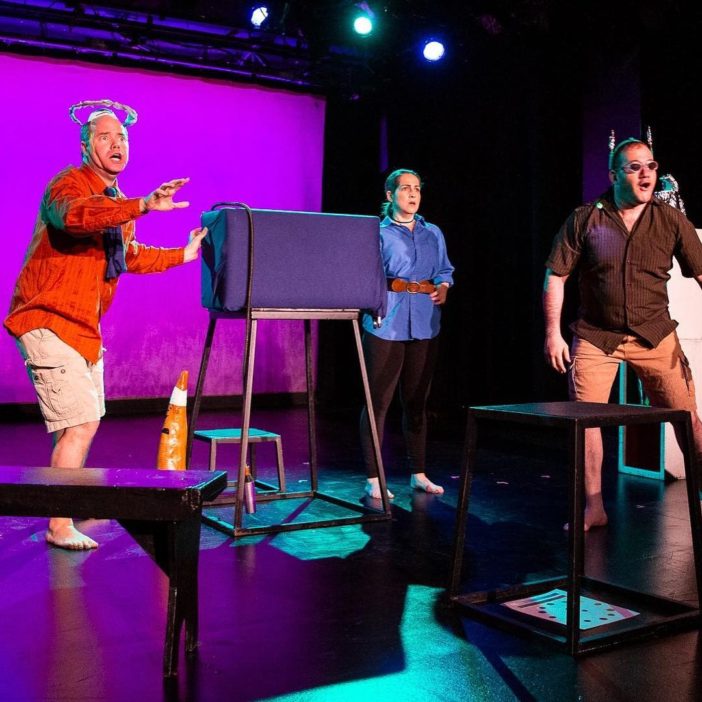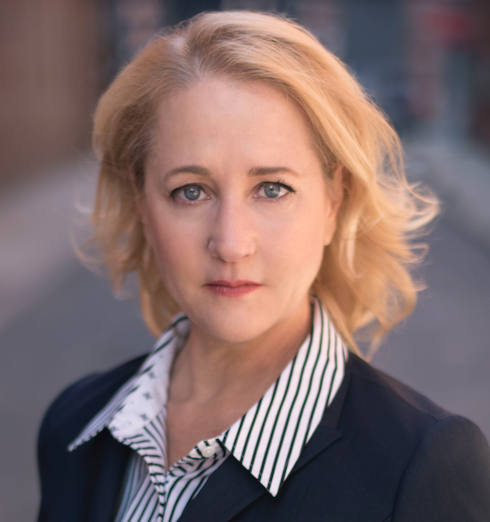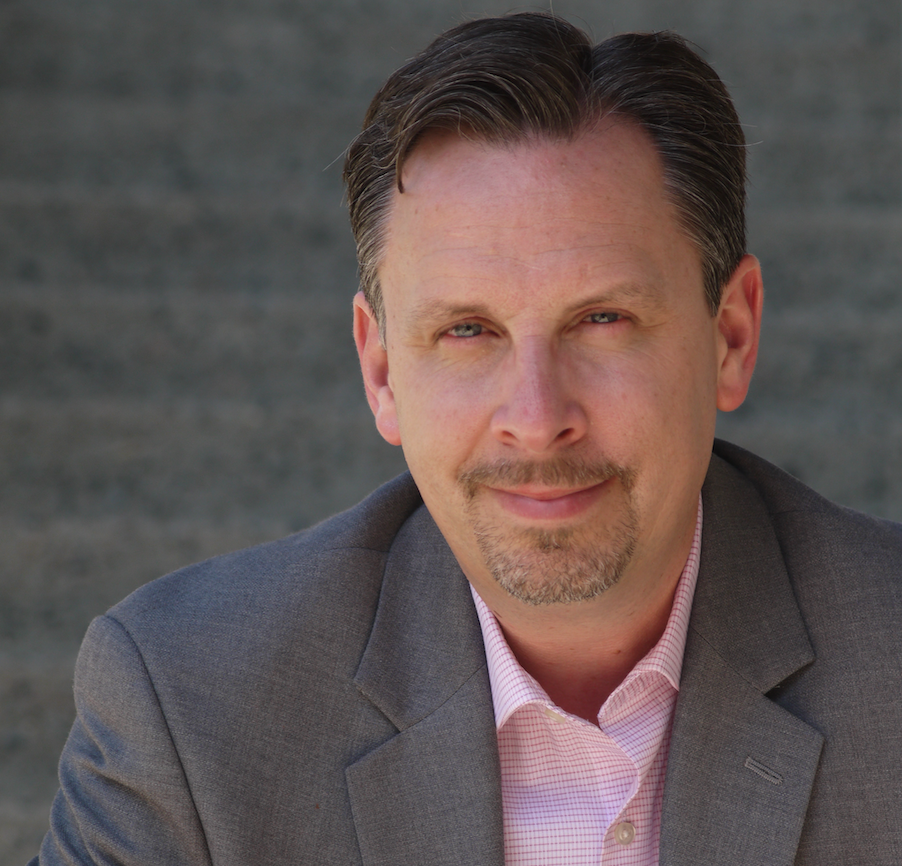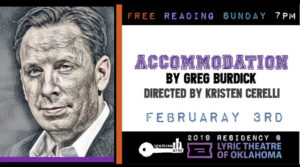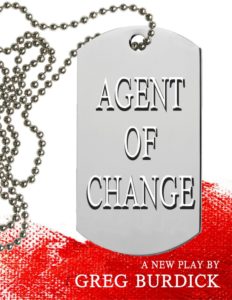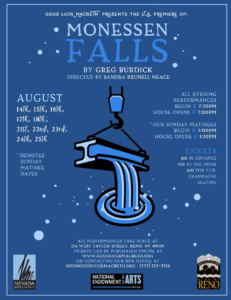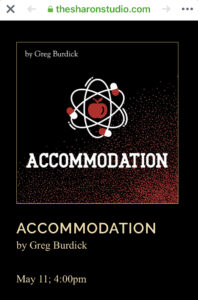Rachael Carnes: Hi, Tricia! Tell me about your creative process as a director?
Tricia Mancuso Parks: Because I come at it first as an actor, they’re two very different things, an actor hat and a director hat are different. I read the piece over and over and over, and then I start hearing it, imagining it, and then I’m very actor-centric, so I read the piece and I get a hit on what it sounds like, what the story is, as I understand it, and then I get in with the actors. In your piece [Permission] it reads so loudly. You can hear it, what’s happening between the mother and the daughter. And then what happens — You have to get it off the page. It has to be embodied with voice. It has to become three-dimensional. And when it does that, then you pull into the present tense, in this time, in this moment. Whether it’s history, or cultural or political, the story has to become so present. You’re working with actors who are breathing and living right now.
What is the director’s role?
My responsibility is to make sure that the story is as clear as possible to the audience. That’s really it. The actors are doing the heavy lifting. My responsibility is to help them hit points, or hit certain turns in the story, that keep our audience there, so our audience doesn’t drop out somewhere, or have questions, or become unengaged, but they get pulled into the story. Each time you go at something, you get another “Aha!” and this is always the exciting thing.
We had rehearsal with your piece on Sunday, I had been re-reading the text, it’s always in my head now. Now I’m visualizing the space that we’re going to be installing it in now, because when you install a piece in a space, the space has its own character. We need to honor that, the theatre. We honor where we’re installing the piece of theatre. Given the parameters of Wild Project, we had some fun staging, that we could incorporate.
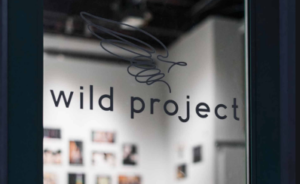
And then on Saturday night, I’m reading the play again, and I think, “Aha!” I have an idea, and I want to try it again with the actors. I can have an idea, and we can try it — Sometimes it works, sometimes it’s clunky, and we move on.
In this last rehearsal, in the very end of your piece, page 10, Alice recounts her trauma, her situation, and we actually got it to where Sarah, our actress, was doing that as just dry, giving it to the audience visually. You take the acting out of it, the emotion out of it, that way the audience can feel it. And as soon as Sarah started to just see the incident in her head, and recant it, not emotionalize it, it breaks your heart.
How do limitations of time, money, resources, stoke creativity?
You have those parameters; those realities and it definitely makes you more creative. This is what we have to work with, this is our timeframe. How much time do we have? How many people do we need? And you show up for it. That’s your job. Period. Right now, you get to have this experience.
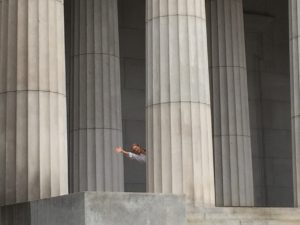
How does it feel to come back and work with the actors you’d engaged with a year ago in a staged reading format? What does it feel like to fully-produce the work?
It’s really fun! I love working with these two actresses, they’re both relaxed, creative, flexible and they’re fun. They also have very good chemistry between the two of them. Sarah [Kiefer], who’s playing the mother, has a preteen daughter. And Emmy [Albritton] can play young, but she’s so strong. Actors spend, what, 70-80% of our lives, trying to get a job, so the time you spend onstage working is brilliant. It’s all in that moment.
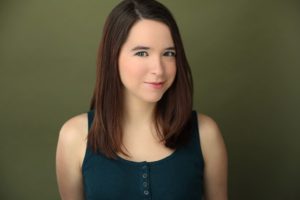
We already have a trust, a chemistry together, and it’s fun. The two of them listen to my ideas, kind of take them seriously, kind of don’t, they’re up there, they’re gonna play around.
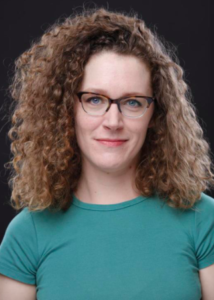
Once you take the script, get off book, and use the space you have, it’s fabulous, it’s play: You get to play. It’s completely fun. Finding these little problems, these obstacles, you have to solve. That’s what you do in rehearsal, we have to solve it.
What is the work you do, through your nonprofit?
My nonprofit Creative Women NY https://www.cwnyi.org/— I moved to NY in ’96, and I was only supposed to be here for a couple of years. I came with my then boyfriend, who’s my spouse now. When I got to NY, I knew a few people, not too many. When I was in California, I was part of a networking, and when I got to NY, I thought I’m gonna have a networking group for creative women in NY, that was back in ’96-97. And at the time, we met once a month and had networking, and it took off.
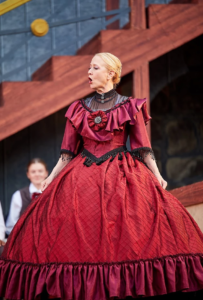
It lasted a few years, I got kind of burned out. So Creative Women went on hold. A friend asked me in 2012, what happened to Creative Women? In 2014, we had to go through the whole process, and Creative Women now, is a full 501(C)(3) production company. We produce theatre, but we don’t have a theatre space. Now it’s a solid producing company, and a solid nonprofit. We co-produce with other groups, fiscal sponsor, work together.
Any advice for someone just starting out in this art form? What’s a drop-in point, for someone new to working in this space? And how would you encourage them if they feel daunted, overwhelmed, or frustrated, like it’s an uphill climb?
You can only get better, the more you do it. Just keep working, keep collaborating, keep listening to your actors and your playwright. And the time we live in and your own instincts: Keep listening, and keep working. You might get burnt out. Your life might take you in another way. If it’s in your blood, you’ll find yourself right back in the theatre.
For more information about Tricia, visit her website:
Find “Permission” on New Play Exchange:
https://newplayexchange.org/plays/264834/permission
And see “Permission” as part of the International Human Rights Arts Festival December 10, 2019, in NYC:
